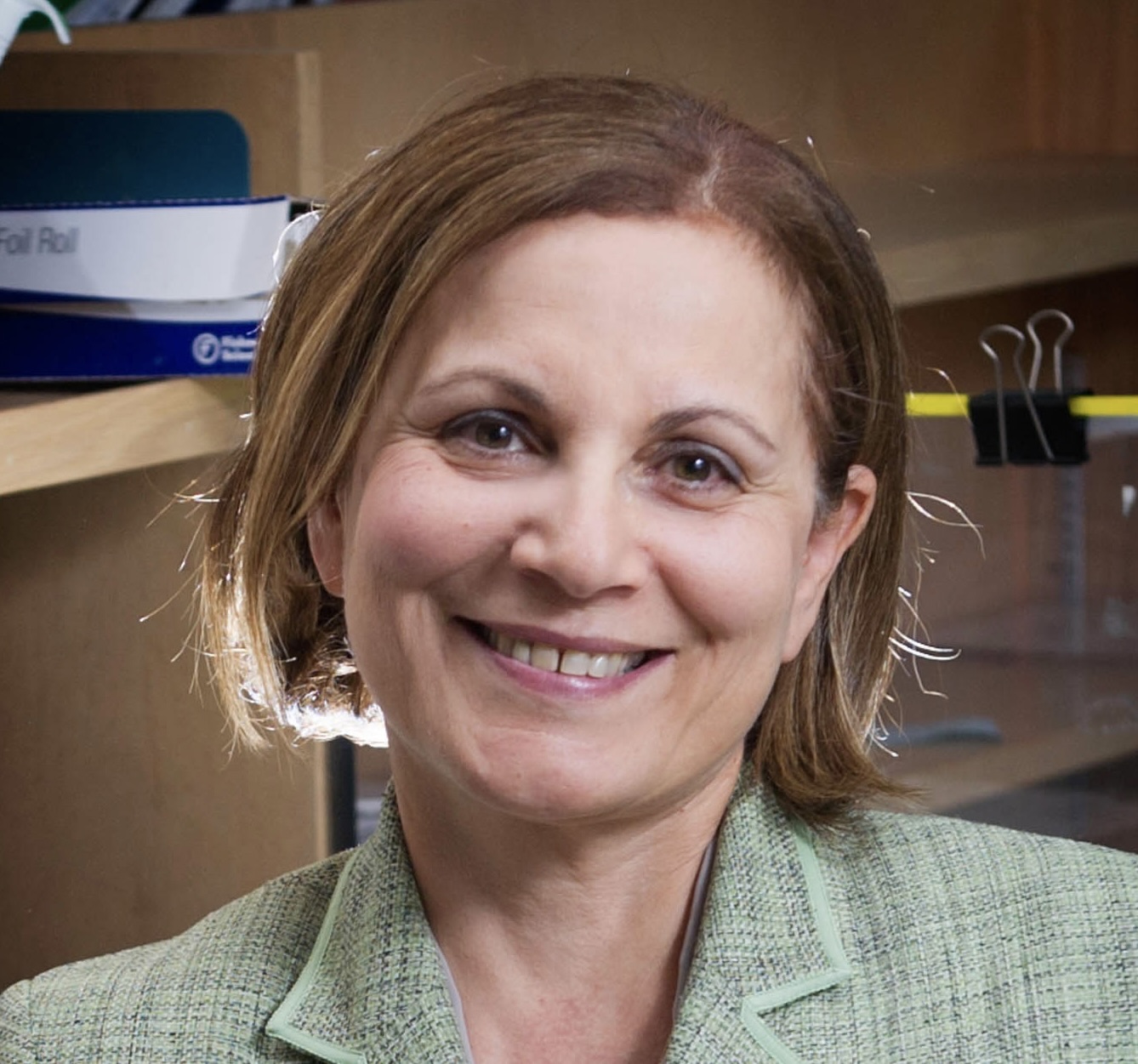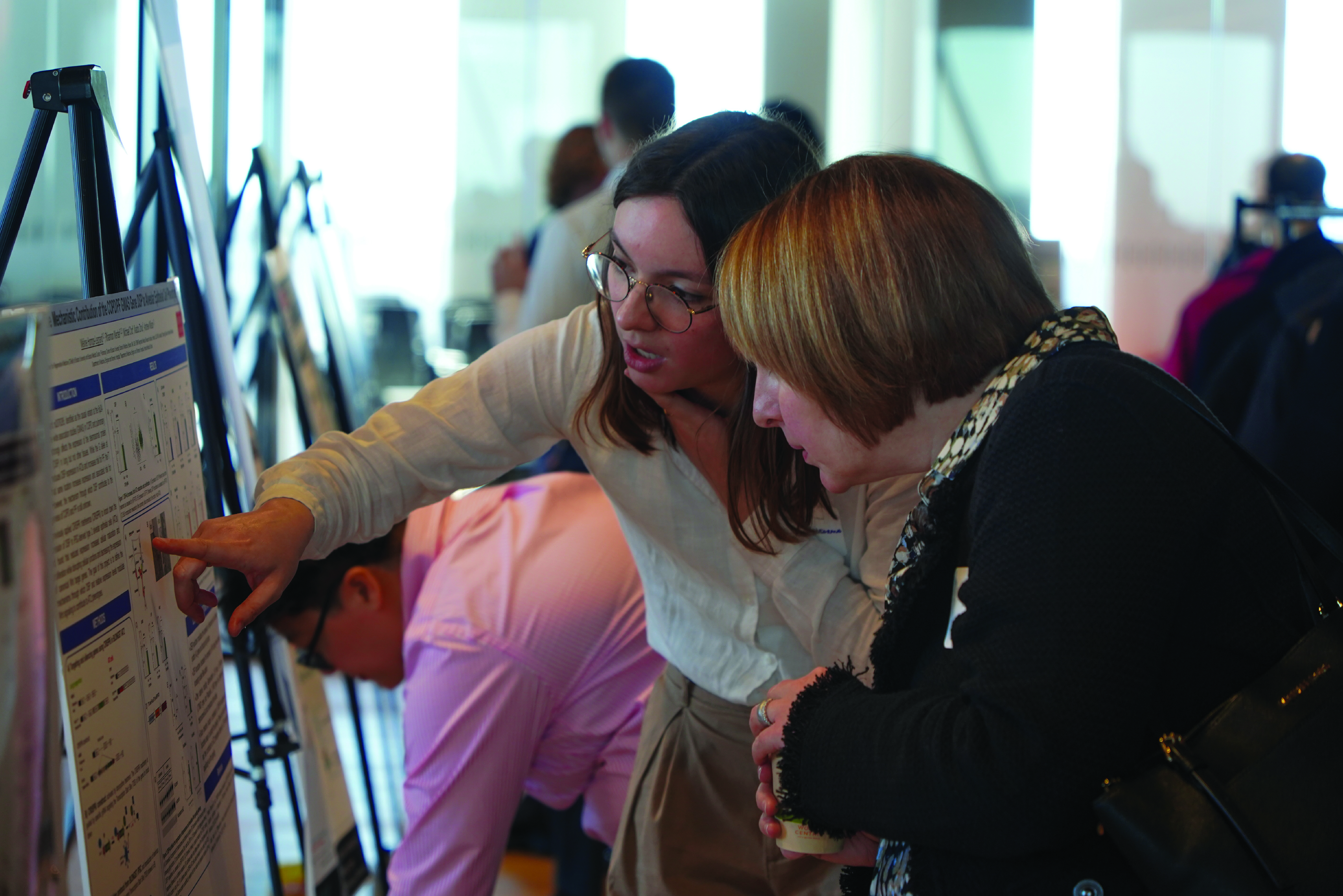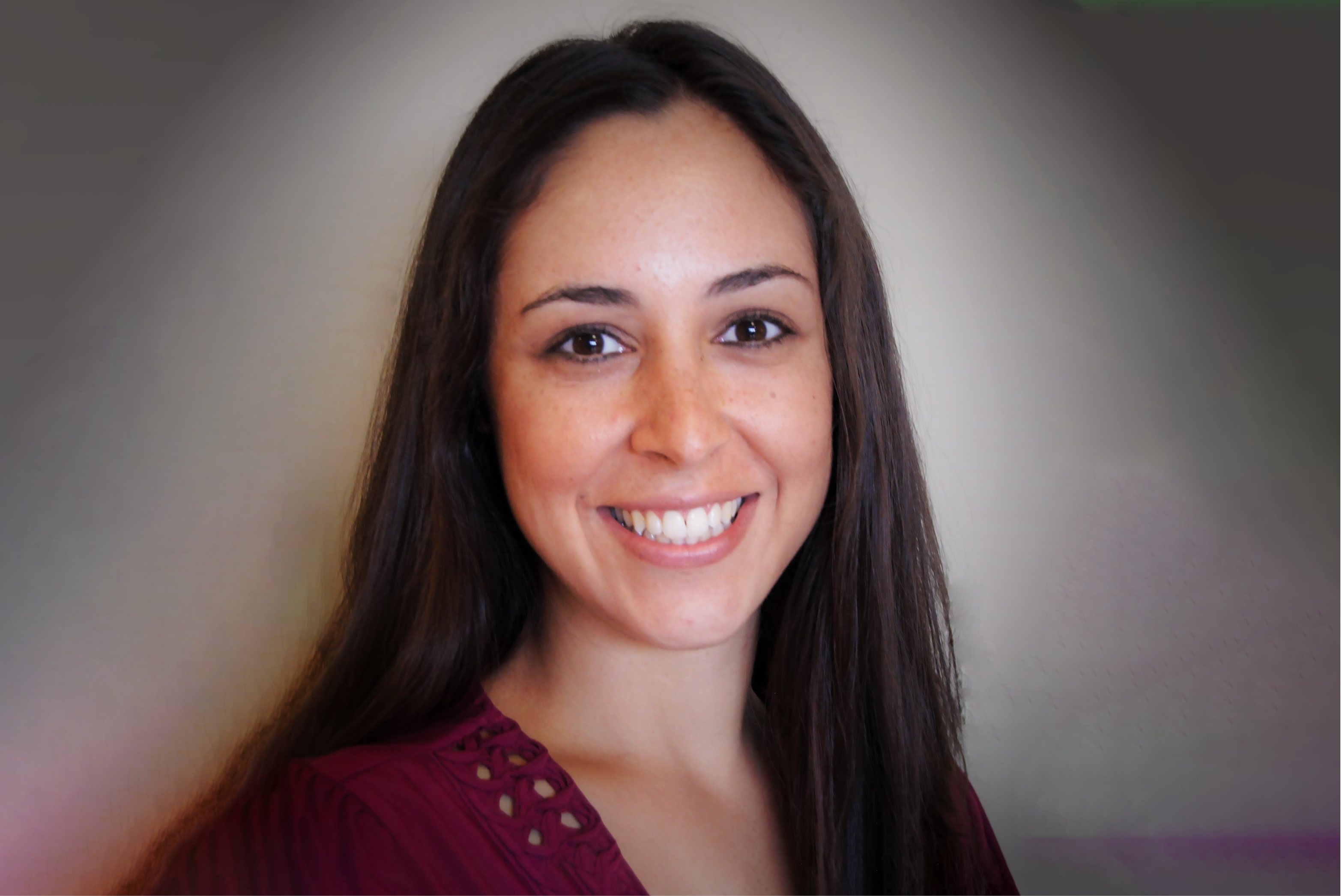Evans Center & IBRO
Launched in the spring of 2009, the Evans Center for Interdisciplinary Biomedical Research (ECIBR) and the BU Interdisciplinary Biomedical Research Office (IBRO), established in 2015, both under the founding directorship of Prof. Katya Ravid, have pioneered new mechanisms for promoting interdisciplinary research across campuses, thus, enhancing innovative, collaborative research at Boston University.

Katya Ravid, DSc, FAAAS, & FAHA
Founding Director, Evans Center for Interdisciplinary Biomedical Research (ECIBR)
& Interdisciplinary Biomedical Research Office (IBRO)
Barbara E. Corkey Professor of Medicine
Professor of Biochemistry, Biology, Health Sciences
The ECIBR began on the Medical Campus, providing the groundwork and tools to facilitate biomedical team science. IBRO expands the reach of those efforts to the Charles River Campus, encouraging more robust collaboration across the University and inspiring initiatives that are larger in scope. Both the ECIBR and IBRO provide opportunities for collaborations within Affinity Research Collaboratives (ARCs) organized around foci of common research interests. The extraordinary strength in biomedical and physical sciences at Boston University and the support and development of the ARCs create opportunities for new interdisciplinary approaches to both research and training in biomedical research. Graduated ARCs have given rise to several new research programs and a center, such as the BU Microbiome Research Program and the Center for Regenerative Medicine, respectively.
Discoveries made by research teams supported by IBRO and the ECIBR are channeled to the BU CTSI for further development of translational research and guidance related to technology developments. For example, cells developed by the regenerative medicine ARC (iPS Bank) were subjected to subsequent translational/ drug screening applications in human samples with the aid of the BU CTSI.
BU CTSI’s Core Goal & Rationale
A core goal for the BU CTSI is to use the resources and expertise of our hub to promote the highest quality and most efficient clinical and translational research. We believe this is best achieved through a Team Science approach, where investigators from different departments and schools with complementary and supplementary expertise engage and interact in networks of teams. Team Science is a critical success factor of the BU CTSI and embedded across all aspects of the program, including training and collaboration with stakeholders and the community.
Working as a team, investigators from different expertise, disciplines, and backgrounds collaborate to solve a complex scientific problem. Such multidisciplinary collaborations are not common although they have been shown to be more efficient in solving complex scientific problems than teams comprised of like-minded individuals (same discipline or background).
The National Academies 2015 report“Enhancing the Effectiveness of Team Science” set out the importance of Team Science in advancing biomedical discoveries and how its effectiveness could be improved both at individual and institutional levels. Most of the recommendations are based on research on teams done in non-science fields such as business. Consequently, more research and tools are needed to evaluate the effectiveness of teams of scientists. The BU CTSI and its affiliates have already implemented policies and activities to stimulate and support multidisciplinary collaborations and continue to develop Team Science programs to maintain the institute’s competitive edge and fulfill the university’s mission of excellent education and research, as well as secure grant funding and advance biomedical discoveries.
Team Science Implementation
BU CTSI approaches Team Science research and education in four major ways, including:
- Co-development of a university-wide Interdisciplinary Biomedical Research Office (BU IBRO), using Affinity Research Collaboratives (ARCs) as incubators for starting up new interdisciplinary biomedical research projects with translational potential
- Collaboration with theEvans Center for Interdisciplinary Biomedical Research, based at Boston University Medical Campus, towards channeling ARC discoveries to technology development
- Formal instruction focusing on multidisciplinary initiatives
- Experiential learning forums.
Interdisciplinary Biomedical Research Office (IBRO)
Affinity Research Collaboratives (ARCs) represents a new paradigm of pursuing investigators-initiated interdisciplinary biomedical research, developed by the Evans Center for Interdisciplinary Biomedical Research at the medical school, with the collaboration of the BU CTSI. IBRO uses this mechanism to create opportunities for collaborative, interdisciplinary research at the university level. This translates into the continued development of ARCs, but also of larger scope initiatives that have the potential to develop into university programs. Further, initiatives based at IBRO mandate co-leadership by faculty from the Medical and Charles River campuses. IBRO adds to its portfolio strategic planning of investigator-initiated ARC themes based on knowledge of upcoming announcements of extramural funding. The Evans Center and IBRO director will continue to work closely with faculty, whether during the process of ARC assembly or through suggestions for areas of developmen.
Evans Center for Interdisciplinary Biomedical Research
The Evans Center for Interdisciplinary Biomedical Research and its building blocks, the pre-ARCs and then ARCs, are based at the Department of Medicine. ARCs are supported by the center, following peer review, and are led by BU Medical Center faculty, with participation of medical campus faculty, and some from Charles River Campus and other universities. The Evans Center is mainly focused on investigator-initiated research topics, following collective discussions of participants and insights provided by the center’s director.
Formal Instruction & Experiential Learning Forums
Activities under this category include:
- Yearly inter-institutional symposia such as the Annual Mobile & Electronic Health ARC Symposium; Arc-hosted, Basic-to-translational research thematic seminars months such as Inflammasome activation in response to SARS-CoV-2 and in COVID-19 patients (Hosted by Respiratory Viruses: a focus on COVID-19 ARC and COVID-19 and Thrombosis Complications (Hosted by the Thrombosis and Hemostasis in Health and Disease ARC and the Whitaker Cardiovascular Institute) Seminars and method-driven workshops on team science and community engagement, followed by discussion forums among faculty and trainees (ARCs Paths to Community Engagement and the Monthly Community Engagement (CE) Education Series directed by Rebecca Lobb, Director of Integration and Strategic Partnerships, BUCTSI and the Center of Excellence in Women’s Health, BMC);
- Think tanks and team science retreats attended by faculty from some hub partners and affiliates to prioritize new areas of translational research and education;
- The Students-Trainees-Driven Medical Technology Program where biotech and pharma companies are asked to present problem statements to graduate students and post-doc fellows for solutions. Benefits include demystifying drug and device development, building entrepreneurial skills, experiencing team dynamics, priority setting, problem-solving, and insights into a potential career with industry (see Medical Innovation and Technology (MInT));
- The Industry Exploration Project via the BU Office of Postdoctoral Affairs offers trainees and grad students the opportunity to explore careers outside of academia and understand the skills necessary to transition from academic science to the biotechnology sector;
- Cross-disciplinary training in Nanomedicine, which has spawned new collaborations between nanotechnologists and medical researchers, brings together faculty from physics, medicine, chemistry, and biochemistry (see: Focus in Nanomedicine);
- “Externships” or mini-sabbaticals where research team members and faculty can spend up to three months outside of BU learning new skills in diverse disciplines. For example, we offer internships in multicenter trials at our affiliate, the New England Research Institute, or any of our 13 Boston HealthNet community health care centers;
- A newly developed Master of Science program focused on Interdisciplinary Approaches to Research based on knowledge of various Research Core technologies, i.e., Master of Science in Biomedical Research Technologies. For more information, click here.
How it all fits with the BU CTSI
The Evans Center began on the Medical Campus, providing the groundwork and tools to facilitate biomedical team science. IBRO expands the reach of those efforts to the Charles River Campus, encouraging more robust collaboration across the University and inspiring initiatives that are larger in scope. The Evans Center remains focused on investigator-initiated research topics within the medical campus, while IBRO develops cross-campus programs around research strengths at BU and initiatives with the potential to develop into university-wide research initiatives and programs. Discoveries made by research teams supported by IBRO and the Evans Center will be channeled to the BU CTSI for further development of translational research and guidance related to technology developments. For example, cells developed by the regenerative medicine ARC (iPS Bank) were subjected to subsequent translational/drug screening applications in human samples with the aid of the BU CTSI.


